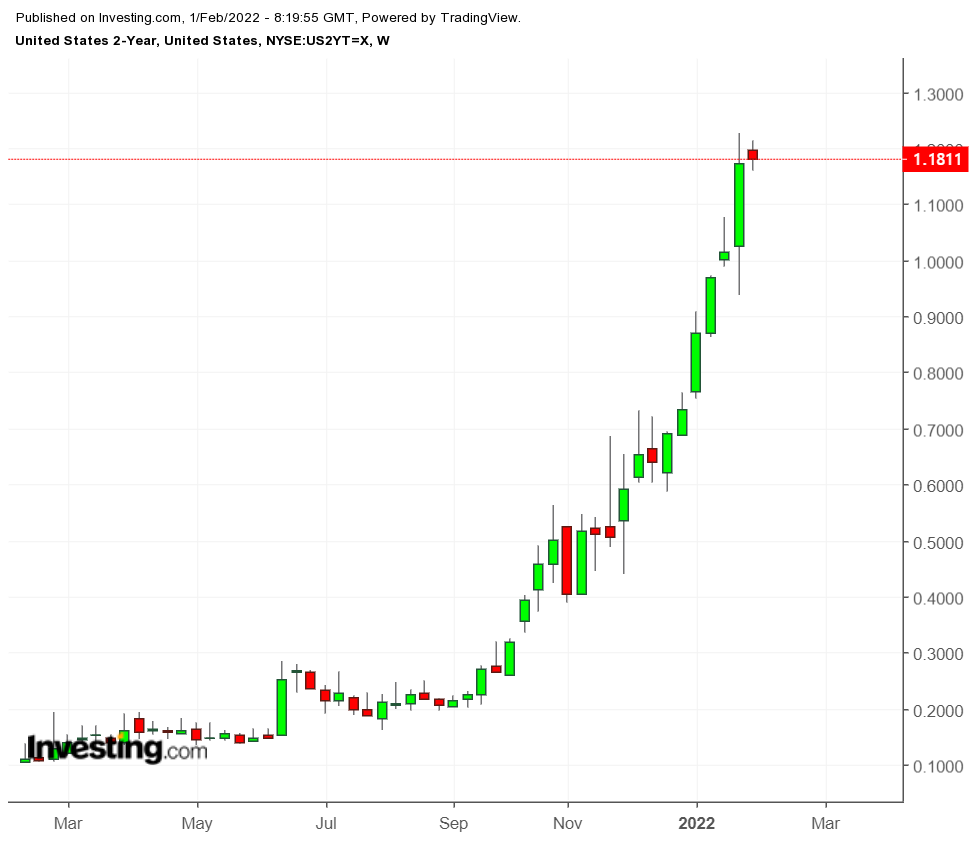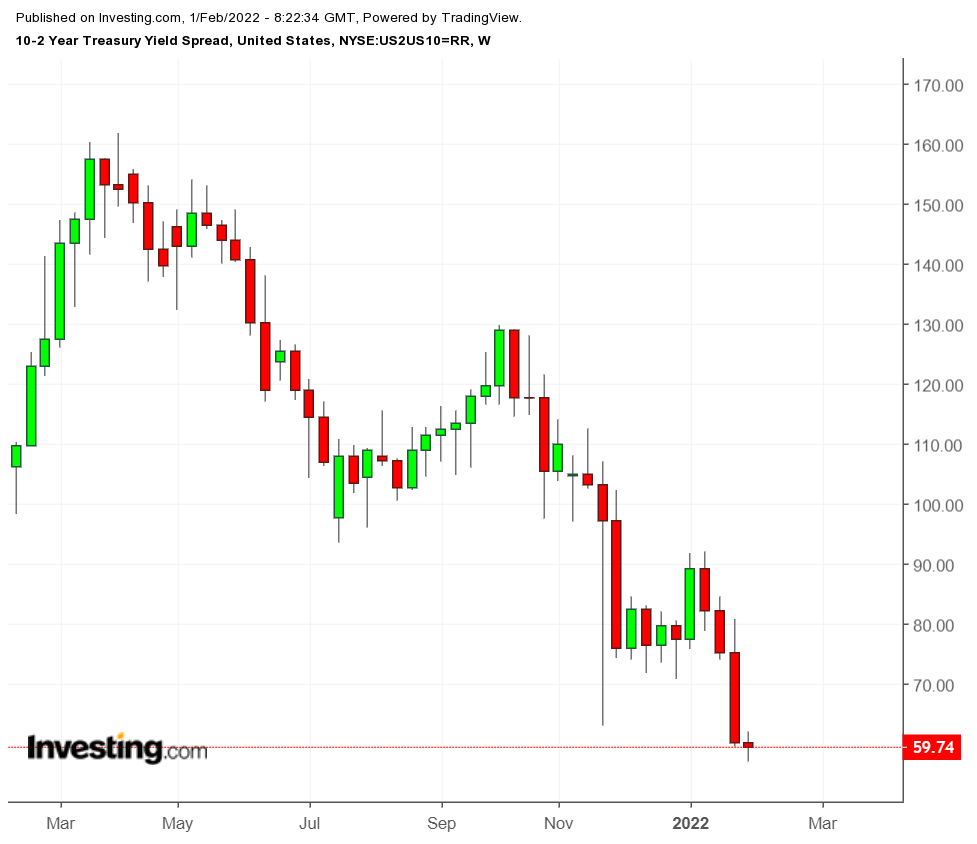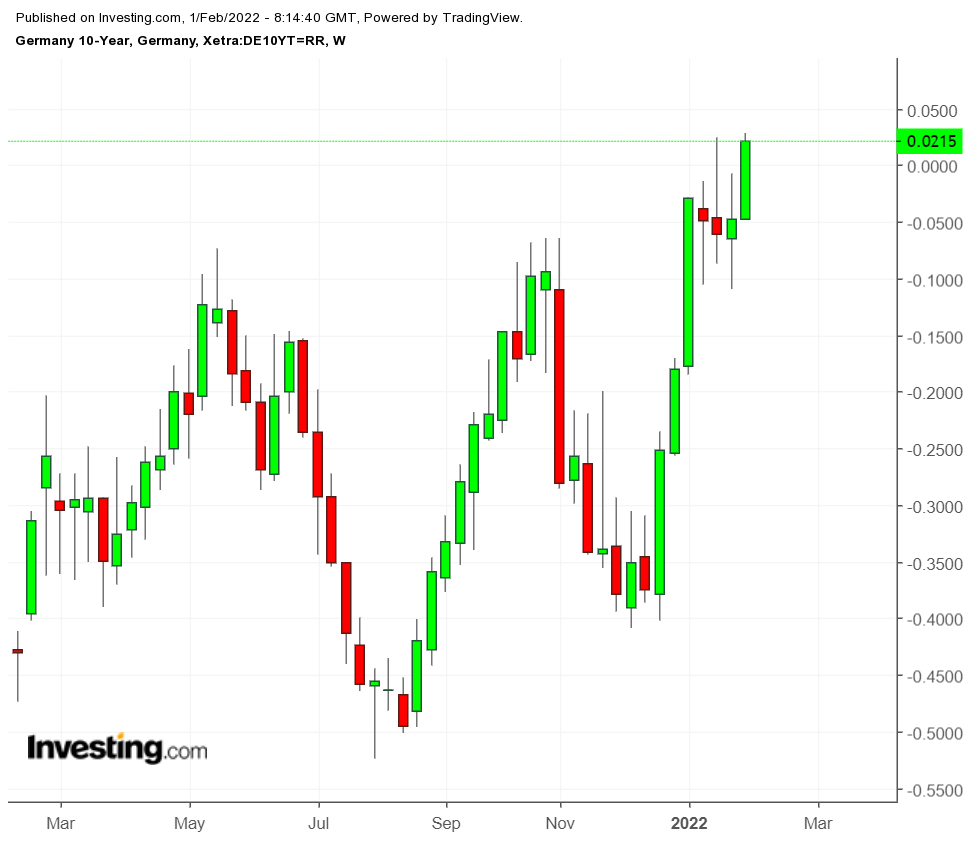The Federal Reserve’s plan to start raising interest rates in March—maybe by half a percentage point—is putting bond market analysts in a pickle.

Yield on the 2-year Treasury note, considered most affected by hikes in the overnight federal funds rate, has been climbing toward 1.2%, with some analysts projecting it will hit 1.5%. This would mean a flattening of the yield curve as yields on the longer maturities remain stubbornly low.
That flattened yield curve could indicate investors are worried about long-term economic growth. Or it could mean they are just confused and uncertain.
Yield on the 10-year note was over 1.78% on Monday, but that means the real yield after accounting for inflation is still decidedly negative. The spread to the two-year note has declined to about 60 basis points from double that just over three months ago.

The 'R' Word Hovers
The only certain thing at this point is that it will remain uncertain for the foreseeable future, as the Fed is now resolved to be more “humble and nimble,” in the words of Chairman Jerome Powell.
Policymakers need to be nimble because no one is sure what the course of inflation will be. There is growing concern it will be “sticky,” i.e., it won’t go away anytime soon and will erode both economic growth and investor confidence.
The cloud on the horizon is the big R—recession. Powell has confidently maintained that the Fed has the tools to combat inflation, but investors are skeptical that these tools will be effective in a situation where supply-chain disruptions and labor shortages exacerbate the rate of price increases.
Further uncertainty comes from the reduction in Fed bond purchases, not only from the March end to new purchases but from the decline in reinvesting maturing bond proceeds that will kick in later this year to slim down the central bank’s bond portfolio. Has Fed buying been propping up the Treasury market and keeping a lid on yields? No one is sure.
The job market is also uncertain, and analysts will be reading the tea leaves in a flood of data this week—JOLTS job openings, ADP employment, weekly jobless claims, and the employment report for January. Data has been mixed as history is not proving to be a reliable guide in an unprecedented situation.
German, Italian Benchmarks React To Potential ECB Rate Hike, Politics

In Europe, yield on Germany’s benchmark 10-year bond finally crossed into positive territory Monday, hitting 0.01%, with investors selling bonds over the prospect of rate hikes at the European Central Bank this year as prices continue to rise.
An exception was Italy, where the weekend decision by 80-year-old President Sergio Mattarella to abandon his plans for retirement and accept a second term led to a surge in demand for government bonds as it left Prime Minister Mario Draghi in charge of the government.
Yield on Italy’s 10-year bond declined marginally to settle at 1.365% in late trading after hitting below 1.28% at the opening. The premium over the German bond narrowed to about 135 basis points, compared to 150 bps last week amid uncertainty over the presidential vote by Italian lawmakers.
